


LCCAA MISSION STATEMENT
“To Serve and Empower
Lorain County Residents in Need”
LCCAA HEAD START
“To Provide Comprehensive, High Quality Education and Support Services to Empower Children and Families to Excel in Life”





LCCAA MISSION STATEMENT
“To Serve and Empower
Lorain County Residents in Need”
LCCAA HEAD START
“To Provide Comprehensive, High Quality Education and Support Services to Empower Children and Families to Excel in Life”

Welcome Letter 3
Head Start Sites/ Program Options 4
Enrollment Requirements 5
Center Parent Information 6
Step Up To Quality (SUTQ) Information 7
Arrival and Departure Procedure 8
School Closings 11
Parent Code of Conduct 11
Parent/Teacher Communication 13
Curriculum 14
Daily Routines 16
Home-Based Learning 20
Transition Policy and Implementation Plan 21
Guidance and Classroom Management 22
Safe Outdoor Play 23
Emergency Plans 24
Disabilities and Mental Health 27
FAMILY SERVICES
Philosophy and Objectives 29
Family Service Assistants and Home Visitors 30
Confidentiality 30
Picture Taking and Social Media 30
Abuse and Neglect Policy 30
Complaint Procedure 31
Participation and Volunteering 32
HEALTH SERVICES
Physicals/ Dentals 35
Illness Management 36
Health Screenings 38
Nutrition 40
Screen Time Policy 41
USDA Information 42
CACFP Information 43

Dear Head Start Families,
We are thrilled to have you and your child join our community. Head Start is committed to providing a nurturing and enriching environment for young children and their families. As parents and guardians, you play a crucial role in your child's education and development, and we look forward to partnering with you on this exciting journey.
Our comprehensive program includes:
● Early Childhood Education: Tailored learning experiences that support children's development in language, literacy, mathematics, science, and social-emotional skills.
● Health Services: Access to medical, dental, mental health, and nutritional services to ensure children are healthy and ready to learn.
● Family Engagement: Opportunities for parents and families to be actively involved in their child's education and development, including volunteering, participating in workshops, and accessing community resources.
● Individualized Support: Personalized services to meet the unique needs of each child and family, including those with disabilities or special needs.
We encourage you to stay in touch and get involved. Here are a few ways you can engage with our program:
● Attend parent-teacher conferences and family events.
● Join the Parent Committee or Policy Council to have a voice in program decisions.
● Read with your child daily and encourage a love of learning at home.
● Communicate regularly with teachers and family service assistants about your child's progress and any concerns you may have.
We are excited to work together to create a positive and enriching experience for your child. Thank you for choosing Head Start!
Sincerely,
Stefani� Dre� Acting Head Start Director
Central Plaza
1949 Broadway Ave. Lorain, Ohio 44052 (440) 204-3100
Site Administrator: Sharon Harmon
Email: sharmon@lccaa.net
South Elyria 107 Oberlin Rd. Elyria, Ohio 44035 (440) 220-8301
Hopkins Locke Head Start 1050 Reid Avenue Lorain, Ohio 44052 (440) 246-0480
Site Administrator: Alicia Risner Email: arisner@lccaa.net
Wellington 305 Union Street
Wellington, Ohio 44090 (440) 647-7440
Site Administrator: Kara Goodwin Email: kgoodwin@lccaa.net
Elyria- Griswold 631 Griswold Rd. Elyria, Ohio 44035 (440) 323-1737
Site Administrator: Diana Gifford Email: dgifford@lccaa.net
Firelands 10643 Vermilion Rd. Oberlin, Ohio 44074 (440) 965-6130
Site Administrator: Pamela Caruso Email: pcaruso@lccaa.net
Lagrange 12079 Lagrange Rd.
Lagrange, Ohio 44050 (440) 324-3175
Site Administrator: Kara Goodwin Email: kgoodwin@lccaa.net
Collaborations
Horizon Educational Centers Little Lighthouse Learning Center Collaborative Administrator: Pamela Caruso
Head Start (3-5 yrs. old)
5-Day (Part Year)
4-Day (Part Year)
Preschool Home-Based Program (Part Year)
Days and Hours of Operation
Centers are in operation Monday - Friday 8:00 a.m. - 5:00 p.m.
Wellington and Firelands are in operation Monday-Friday 8:00 a.m. - 4:00 p.m.
Hours are subject to change based on the needs of families and children.

Thank you for your interest in the Head Start preschool program.
The Head Start registration packet must be completed to have your child enrolled for this year’s program. Applications are complete when the following have been submitted:
● Child’s Birth Certificate or Proof of Birth
● Child’s Immunization Record
● Child’s Social Security Card
● Parent’s Photo Identification
● Income Verification (Income Tax Forms, W-2, Current Pay Stubs, TANF Printout of cash assistance or food stamps, etc.)
● Names, Addresses, and Phone Numbers of at least 3 Emergency Contact people
● Physical and Dental Appointment Dates or completed exams
● Child’s Health and Dental Insurance Card
● Custody papers, if applicable
● ODJFS forms (JFS 01234) must be completed prior to your child’s first day of school.
Head Start Orientation is required before a child can start school.
Please contact your Family Service Assistant if you have any questions about your enrollment forms or required documents.
Head Start is not responsible for any lost, stolen, or damaged property


LCCAA wants to ensure that all children have a high-quality early childhood experience, therefore, all LCCAA Head Start sites have the highest Step Up to Quality rating. This gold rating means you are enrolling your child in a learning and development program with a level of quality that exceeds Ohio’s childcare licensing standards.
High-quality learning and development programs are important because early experiences last a lifetime. Your child has approximately 1,892 days from the time he or she is born until kindergarten. What happens on this journey lays the foundation for success in school and life.
A Step Up to Quality gold rating means your child is in a program that has demonstrated the highest level of quality. Below are some of the ways a program can provide increased quality at the five star level:
● There are more staff members per child.
● The administrator and teachers have higher educational qualifications.
● The administrator and teachers complete more than 20 hours of specialized training every two years.
● Teachers develop lesson plans that support each child’s growth.
● Program staff complete assessments to evaluate and improve learning experiences.
● Families and the community are valued.
● The program supports and values employees.
Staff will supervise children at all times and will meet the staff/child ratio for the center’s licensing capacity
The ratio of childcare staff to children present shall be:
-5 Years
to 14 / 1 to 10 (SUTQ)
/ 20 (SUTQ)
/ 20 (SUTQ)
*LCCAA Head Start uses the Step Up to Quality (SUTQ) recommended ratio of 1:10 or 2:20
● When age groups are combined, the age of the youngest child will determine the staff/child ratio
● Staff whose duties interfere with the supervision of children will not be counted in the staff/child ratio.
Our centers are licensed by the State of Ohio. The State Department of Job and Family Services issues each center a license that is posted for review. The law and rules governing are available for review upon request. The center’s licensing report is available upon request from the department. The Department of Job and Family Services toll free number may be used to report a suspected licensing violation by the center
It is unlawful for the center to discriminate in the enrollment of children on the basis of race, color, religion, sex, or national origin.
Arrival procedures will vary by site. Children will either be signed in by staff at the car or at the door (walkers), or parents will accompany children to their classroom and sign in. Please be mindful to limit conversation with teachers to ensure child safety and ratio. Meetings can be scheduled for longer conversations as needed.
Please familiarize yourself with the drop off/pick-up procedures at your site, particularly the designated areas for parking if applicable.
For everyone’s safety, cars must be turned off as parents remove their children from their car seats and escort them to the teacher.
This procedure is subject to change during the school year.

1. Parents are encouraged to send their child to school every day unless the child is ill.
2. Parents are asked to notify the center of a child’s tardiness or absence within one (1) hour of the start of the program.
3. Staff may call, email, or message within 1 hour of the start of class to indicate that the child is not in attendance. If a child due to arrive from another program does not arrive at the center at the expected time, the parents / program will be immediately contacted.
4. Family Service Assistants will utilize a variety of strategies to contact the family about student absences.
5 A child will automatically be dropped from the program if there have been 30 consecutive absent days without communication from the parent. Depending on the reasons for absence, the child may be added to the waitlist or referred to another program option.
1. Our center policy is that we will not release a child from the center to any person other than persons listed on the registration form pick-up list.
2. Staff will write down the time each child is picked up.
3. Pick-up persons must be thirteen years or older, present a photo ID when picking up a child, and make the teacher aware of the child’s departure.
4. Children will only be released to persons listed on the registration forms. Parent/Guardian may make changes to pick-up people in writing on a Change of Status form. Phone calls will not be accepted!
5. Please be mindful to limit conversation with teachers to ensure child safety and ratio. Parents are asked to schedule a time to meet, if needed.

1. Staff will attempt to contact the parent by phone. Parent may not give permission over the phone or send a note for pick-up by an unauthorized person. The parent must make arrangements for an authorized person to pick up the child.
2. If the parent cannot be reached, staff will call the list of pick-up persons and emergency contacts.
3. A copy of the signed No One to Receive Notification form will be provided to the parent/ designee.
4. If neither parent nor contacts can be reached to pick up the child in a reasonable amount of time (after 1 hour from the end of school), this can be considered child neglect or abandonment, and the Police and/or Children Services may be contacted.
In the case of a divorced or separated family, the agency cannot legally refuse a parent the right to pick up the child unless staff have been notified that such action has been outlined in the divorce or custody papers through the courts and documentation has been provided. If the non – custodial parent arrives to pick up the child and prior permission has not been received, the following procedure will happen:
1. Parent will be asked to provide documentation from the courts.
2. Custodial parent will be contacted for verification of pick up before the child is released. The parent will be informed that the non-custodial parent is requesting the release of the child and has presented court documentation necessary to release the child.
1. Staff will not release the child.
2. Custodial parent will be contacted.
The roster is available upon request.
LCCAA Head Start center-based programs do not provide transportation to centers or field trips. Parents/guardians will sign a Routine Trip form upon enrollment of their child/ren. This form gives permission for local walking trips, such as to the library or evacuation sites.
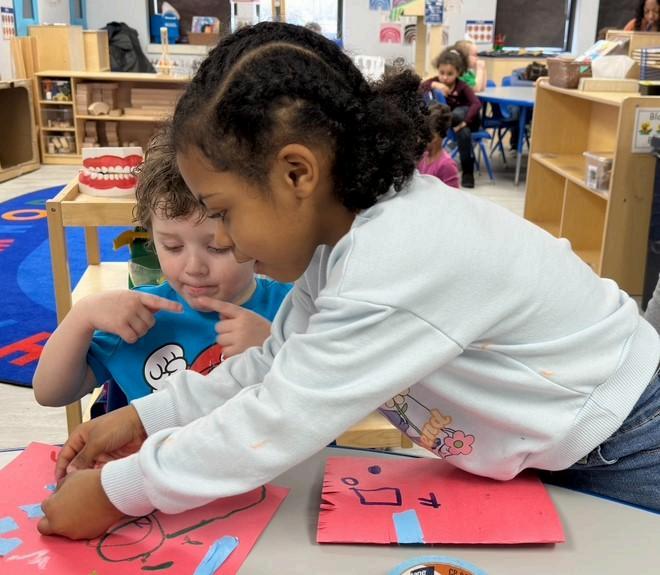
In case of an emergency and/or accident, the center has posted a medical and dental emergency plan. Staff will complete an incident report form. The center will administer first aid, summon emergency transportation if needed, and contact parents. See pages 24-25 for additional emergency procedures. For any parent refusing emergency transportation, the agency will follow parents’ instructions listed on ODJFS forms in emergency situations.
School closings and delays are made to ensure the safety of your child. Reasons for school closures can include hazardous weather, loss of heat, water, electricity, etc.
You must make your own judgment about driving in hazardous weather situations. If bad weather begins and you wish to pick your child up early, you are free to do so.
School closings will be communicated with families by LCCAA’s Facebook page, the agency website at www.lccaa.net, SchoolStatus Connect, and local news channels’ school alert systems. Wellington and Firelands classrooms close when their school districts close.



In order to maintain an orderly, respectful and secure educational environment, it is essential that all parents and visitors act in a well-behaved, respectful manner. Inappropriate language or threats (verbal or physical), will not be tolerated. The education of our children is the joint responsibility of families and Head Start staff. Should there be a need to address any issues with the staff, please follow the proper guidelines detailed in the handbook. LCCAA Head Start staff and parents are to be the best role-models for our children. The leadership of LCCAA and the Parent Policy Council therefore requests all parents and visitors to act accordingly.
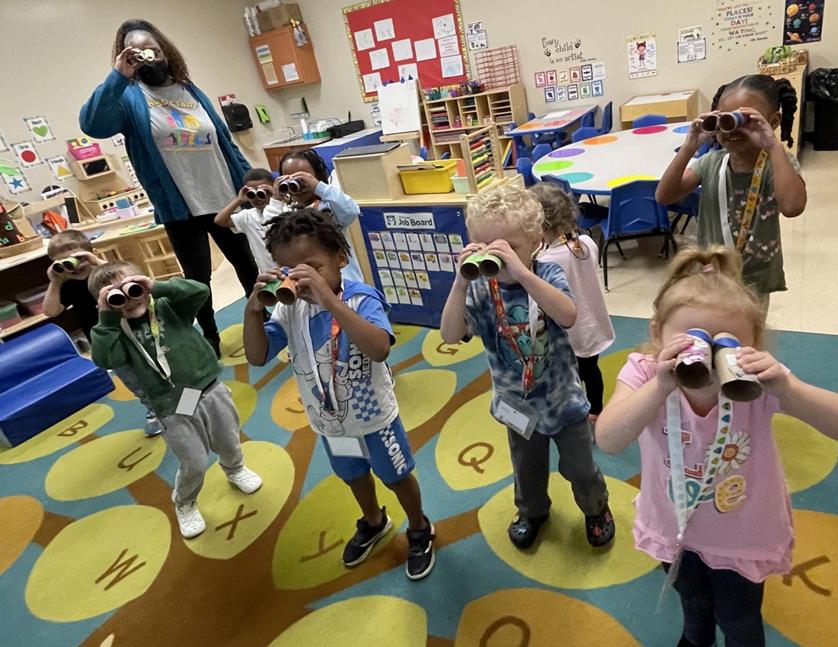
Early Childhood Services consists of Teachers, Assistant Teachers, Early Childhood Service Assistants, Home Visitors, Site Administration, and support staff
The Educational Services component will meet the needs of participating children, including children with special needs. We use the Creative Curriculum, which is based upon the assumption that a child learns by interacting with objects and people in his or her environment. Many opportunities are provided for each child to physically experience a wide variety of materials and equipment by both structured and spontaneous learning and play. Children are presented with activities that are appropriate for their individual developmental stage. Head Start’s primary strategy is to prevent problems by reducing risks and nourishing a child’s growth. Assisting children in developing their competence in all areas of growth is critical.
Head Start education is based on the belief that the direct involvement of the family is necessary for a child to learn and grow. Parents and teachers creating an individual learning plan for each child will develop learning opportunities based on the child’s ability.
We look forward to sharing developmental milestones and goals. The following is a list of the ways the teachers and parents will communicate throughout the year:
● The children will keep daily work in their personal mailboxes/folders in the classroom.
● Teachers will send homework and important notices in a Classroom Connector folder. The folder is clearly marked with papers to keep and which to sign and send back on your child’s next school day
● SchoolStatus Connect is a family-school communication platform that can be used to post notices, share photos, and send messages back and forth.
● This app can be downloaded on a smartphone or tablet or accessed through a computer.
● The Biweekly will be sent home every two weeks. It contains skills your child is working on in the classroom, the curriculum study/investigation being discussed, suggested books to read to your child, and special event information.
● Parents may add any suggestions or ideas by filling in the bottom portion of the newsletter
● A parent volunteer log filled with activities for you to do with your child will be attached to the biweekly newsletter Please fill out this form accordingly and return with the signed biweekly
● The child’s teachers will make two - three home visits during the school year. The first one usually occurs before school starts, with others in October and April or May.
● At the first home visit, two educational goals are set with the parent and child. These goals will be revisited at each home visit/conference throughout the year
● Teachers will provide learning activities to support school readiness.
● Child screening results and progress throughout the year are shared.
● Twice a year (December & February/March), you will meet with your child’s teachers to discuss your child’s progress throughout the year
● Learning activities to support school readiness will be provided.
● The Head Start Newsletter provides valuable information in the form of articles, activities that parents and children can do together, upcoming events, and other Head Start News. The menu will be listed here as well.
● The newsletter is available bimonthly electronically or as a hard copy
LCCAA Head Start uses Creative Curriculum, a comprehensive and research-based curriculum that features exploration and discovery as a way of learning. It enables children to develop confidence, creativity, and lifelong critical-thinking skills.
The Creative Curriculum platform is designed to elevate the role of the teacher as a central guide for whole-child development. Within this role, the teacher provides the resources and tools needed for individualized instruction that benefits all early learners.

Good teaching begins with understanding that each child is unique. Progress in each child’s development will be tracked in relation to curriculum objectives and shared with parents. Additionally, the program will share assessment data to meet state and local program requirements to the Ohio Department of Education and Workforce and the Ohio Department of Jobs and Family Services (ODJFS) (5101:2-17-02 of Administrative Code). Careful observations of children lead to a variety of instructional strategies to guide children’s learning and enable teachers to learn about and plan for each child in the group. Students benefit from developing a partnership with each family and working together to support their optimal development and learning.
The learning environment includes how teachers set up and maintain interest areas in the classroom, establish schedules and routines, organize choice times and small- and large-group times, and create a classroom community where children learn how to get along with others and solve problems peacefully. Children will be developing skills in each of these content areas: Literacy, Math, Science, Social Studies, Social Emotional, The Arts, and Technology.



The Creative Curriculum framework is based on the research of well known theorists in the early childhood field such as Piaget, Maslow, Erikson, Smilansky, Vygotsky, and Gardner
The five components of The Creative Curriculum are applied to the eleven areas listed inside the framework:
● Blocks- When children play with blocks, they begin to understand math concepts, such as height of buildings, geometric shapes, and weight and size.
● Dramatic play- Children take on different roles and enact real-life experiences to deepen their understanding about the world. They also learn to cooperate with others, solve problems, and think abstractly.
● Toys and Games- Toys and games help children use their imaginations, explore how things work, strengthen and improve the muscles in their hands, work cooperatively with others, and learn new content.
● Art- Drawing, painting, cutting, molding, and constructing help children express their ideas and feelings, improve coordination, learn colors and textures, and develop creativity and pride in their accomplishments.
● Library- This is the foundation for reading and writing, and the relaxing quiet spot for students to let their imaginations run. Books are changed based on the seasons and classroom studies so there is always something for everyone.
● Discovery- Discovery, or Science Area, is a place where children explore and investigate answers to their questions. They observe, experiment, take things apart, and use tools to handle a variety of materials as well as learn how to communicate with others.
● Sand and Water- Children are encouraged to experiment with these, and other, materials. When children pour with funnels and measuring cups, they are exploring math concepts; dropping objects into water teaches about the concepts of sink and float.
● Music and Movement- Singing and moving to music give children a chance to hear different kinds of music, express themselves through movement, and practice new skills. Music helps them cooperate in a group and improves transitions.
● Cooking- “Reading” a recipe, measuring ingredients, and mixing all teach math, literacy, and self-help skills.
● Technology- Using technology helps with math, literacy, problem solving, and helps to prepare students for using technology in the future.
● Outdoors- Playing outdoors helps your child notice and appreciate the sights, sounds, and smells of the world around them, as well as help to develop their bodies by running, climbing, and exploring.
The elements of the daily routine will remain the same in all the classrooms. The order of these elements may differ due to scheduling outdoor times, gym time, special events, etc. These elements are:
Preschool students will have regular trips to the bathroom throughout the day or as needed.
● All Head Start students must use, or be working towards using, the toilet independently. This means they will be able to maneuver clothing, use zippers or other fasteners, and wipe independently Teachers can only support children by coaching them step by step with words from the doorway.
● If your child is not toilet trained, Family Service Assistants and teachers will immediately create an individualized Toileting Action Plan. It will consist of action steps, resources, and timelines to be consistently followed at home and school. Family involvement is an essential part of the toileting action plan
● Families must provide a spare set of clothes to the teacher for toileting emergencies or be called to provide some if no spare clothes are available.
Teachers will greet each child upon arrival. The children may have quiet activities or breakfast to start the day, depending on the classroom schedule.
Group meetings may include singing a welcome song, discussing attendance, the daily schedule, and classroom jobs, answering the question of the day, conducting an activity related to the study, or being introduced to new materials added to interest areas.
Meals are eaten in small groups and served family style. Adults eat with the children and conversation is child centered. Serving bowls will be passed from child to child, with students plating their own meals.
All children will brush their teeth daily in the classroom. All dental resources are provided and sent home throughout the year as well.
Children will engage in a nap or quiet time each day after lunch.
During choice time children can work with any of the materials in any of the interest areas. At 60 minutes, choice time is the longest single time segment in the daily routine.
During small group activities, teachers introduce new concepts and reinforce skills for each individual child. Although the adult chooses and introduces the materials, he/she encourages the children to use the materials in a variety of ways.
At large group time, all the adults and children in the group get together to play games, sing songs, dance, play musical instruments, repeat phonemic awareness activities, exercise, or reenact special events.
Teachers introduce a new story or reread a familiar one, ask questions, reenact and retell stories, and involve children in the reading.
Teachers lead activities related to a study, assist game and movement activities, and encourage free play that promotes large-muscle development. Indoor/Outdoor play is provided daily, so please ensure your child is dressed accordingly for the weather.
Sand and water play is available daily in the classroom. Smocks are provided, but your child may still get wet. LCCAA Head Start does not offer swimming opportunities.
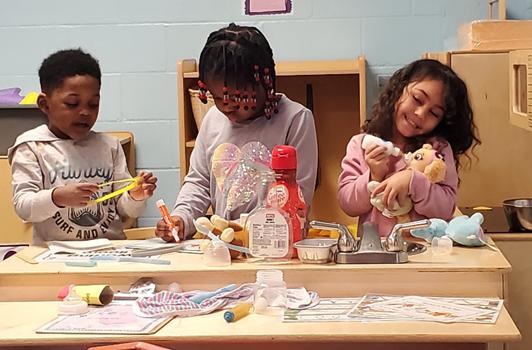
Hopkins Locke · Elyria Griswold · Central Plaza ∙ South Elyria
8:30-9:00 Arrival/Conscious Discipline Greeting/Breakfast/Choice Activities
9:00-9:15 Group Meeting
9:15-9:35 Small Group
9:35-10:35 Free Choice
10:35 -10:45 Cleanup
10:45-11:05 Read Aloud
11:15 - 11:45 Indoor/Outdoor Experience
11:45-12:00 Restroom Break
12:00-12:30 Lunch
12:30-12:45 IMIL/Restroom Break
12:45-2:15 Rest Time/TableTop Activities
2:15-2:30 Restroom Break
2:30-2:45 Heggerty Phonemic Lessons
1:45-2:15 Book Choice
4:15-4:30 Recall the day and Departures
Wellington
8:30-9:00 Arrival/Conscious Discipline Greeting/ Breakfast
9:00-9:30 Group Meeting/Choice Activities
9:30-9:50 Small Group
9:50-10:00 Restroom Break
10:00-10:30 Indoor/Outdoor Experience
10:30-10:45 Read-Aloud
10:45-11:45 Choice Time
11:45-12:15 Lunch
12:15-12:30 Restroom Break
12:30-2:00 Rest Time/Table Top Activities
2:00-2:15 Restroom/Group Meeting
2:15- 2:30 Heggerty Phonemic Lessons
2:30- 2:45 IMIL
2:45- 3:14 Book Choice/Restroom
3:15- 3:30 Recall the day and Departures
8:30-8:45 Arrival/Conscious Discipline Greeting
8:45-9:15 Sign-In/Question of the Day/Breakfast
9:15-9:30 Morning Meeting
9:30-9:50 Small Group
9:50-11:00 Free Choice/Clean-Up
11:00-11:30 Indoor/Outdoor Experience
11:30-11:45 Learning Without Tears
11:45-12:00 Large Group
12:00-12:30 Lunch
12:30-12:45 Read Aloud
12:45-2:15 Rest Time/Table Top Activities
2:15-2:30 Heggerty Phonemic Awareness
2:30-2:45 IMIL
2:45-3:00 Group Meeting and Departure
9:00-9:30 Arrival/Conscious Discipline Greeting/Restroom Break
9:30- 10:00 Breakfast/Toothbrushing
10:00-10:10 Group Meeting
10:10- 10:30 Small Group
10:30-11:30 Choice Time
11:30- 12:00 Indoor / Outdoor Experience
12:00-12:15 Heggerty Phonemic Lessons
12:15-12:45 Lunch
12:45-2:30 Quiet Time/Restroom Break
2:30-2:45 Read Aloud
2:45- 3:15 IMIL
3:15-3:30 Snack
3:30- 4:00- Indoor / Outdoor Experience
4:00-4:15- Book Choice/ Table Top Activities
4:15-4:30 Recall the day and Departures


LCCAA offers home-based learning as an alternative to center-based learning. The home-based program is a great option for families without transportation or with other family concerns that prevent attending daily in a classroom.
Head Start Home Visitors come into the home for 1.5 hours a week, bringing books and a learning activity for the parent and child to participate in together. The curriculum used in the home-based program is called Growing Great Kids. Since interacting with other children their own age is the best way for children to gain the social skills they need for future school success, regularly scheduled socializations are held in a classroom setting. Parents can talk to each other and the children can play together. Children enrolled in a home-based program will still have access to screenings, assessments, and opportunities to participate in agency-wide family activities.
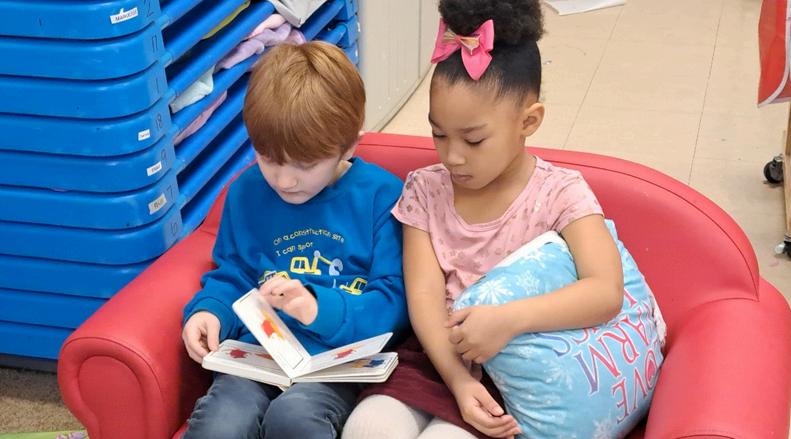
A Head Start student may transition for any of the following situations:
● Transition into the Head Start Program
● Transition between classrooms
● Transition from preschool to kindergarten
We are committed to easing these transitions for both the child and the family

Head Start will maintain a list of eligible kindergarten children and work closely with the local school districts to provide a continuation of services to children as they transition into kindergarten (in accordance with the preschool to school age Inter–Agency Agreements). Parents will receive a kindergarten packet for children who will be transitioning into kindergarten. Head Start will contact major school districts after the winter break to obtain information on kindergarten registration. When possible, Head Start will provide on-site registration, copies of documentation, and any developmental data needed for enrollment to kindergarten. Transition will end with the bridging ceremony that symbolizes the of education.

LCCAA Head Start’s discipline policy follows the Conscious Discipline behavior modification concept and the Creative Curriculum problem-solving concept. The ultimate goal of this policy is to assist all children in the development of self-control and self-regulation.
Staff will strive to prevent situations from occurring when possible. Children having difficulty in cooperative play will be redirected and assisted to find more positive and productive “work” and interest. Staff will talk with children, listen to their concerns and assist in finding solutions.
All staff persons will use the following guidelines:
1. There shall be no cruel, harsh, or unusual punishments.
2. No discipline technique shall be delegated to any other child.
3. No physical restraints shall be used to confine a child.
4. No child shall be placed in a locked room.
5. No child shall be humiliated or subjected to profane language or other verbal abuse..Discipline shall not be imposed on a child for failure to eat, failure to sleep, or for toileting accidents.
6. Techniques of discipline shall not unnecessarily humiliate, shame, or frighten a child.
All staff persons will use the following process:
1. A thorough evaluation of the situation.
2 A redirection of the child’s activities. A teacher will use developmentally appropriate techniques that take into consideration the child’s age and circumstances.
3 A discussion with the child to assist with self-regulation.
4. If challenging behaviors are ongoing, the teacher may make a referral for observation by the agency’s mental health consultant.
5. If necessary, a behavioral action plan will be implemented to ensure a child’s safety in the classroom environment.
● Children participate in I’m Moving, I’m Learning (IMIL) throughout the day, which is an initiative to increase health and physical fitness.
● Preschool aged children will have at least 30 minutes of unstructured physical activity per day.
● Active play time is never withheld as punishment.
● When outdoor opportunities are not possible due to adverse weather conditions, similar activities are provided inside.
● Staff members encourage children to be active and are required to join children in active play.
● Staff members receive training on physical activity during the course of the school year.
● Physical activity is promoted in the classrooms and common areas through the use of discussion, pictures, and displayed books.


A wide variety of fixed play equipment (slides, climbing equipment), as well as portable play equipment (balls, hula-hoops, etc.) are available to the children.
Outdoor time is part of the daily schedule; it is important that children have appropriate clothing (jackets, hats, etc.) and footwear (closed-toe shoes) at the center for all weather conditions. *
*According to the Ohio Department of Jobs and Family Services Rule 5101:2-12-14, each center shall provide an opportunity for supervised outdoor play each day in suitable weather The center shall plan a daily outdoor play period for each toddler, preschooler, or school aged child. Outdoor play shall be shown as part of the center program schedule. Outdoor play may be canceled or limited due to weather or safety issues. Considerations may include but are not limited to temperature, humidity, wind chill, ozone levels, pollen count, lightning, rain or ice.
The Head Start and Early Head Start programs have devised several procedures to follow in the event of an emergency. In the event of a fire or tornado, staff will follow the written evacuation plan instructions posted in each classroom. The staff will ensure that children arrive at the designated site. To prepare children for the unlikely need to evacuate the building, the centers will conduct monthly fire drills and periodic tornado drills. Should evacuation occur due to fire, weather conditions, or the loss of power, heat, or water, children will be taken to the safe sites listed on the following page. A sign will be posted on the front of the building indicating that the center has been evacuated. If a parent cannot be reached, we will contact the emergency contacts listed on your child’s enrollment information. The process to release a child from the emergency evacuation location utilizes Reunification Cards. Individuals picking up children will be asked to present a photo ID and complete a reunification card for each child.
Head Start center-based students also practice lockdown drills regularly In the unlikely event of a threat of violence, the staff will secure the children in the safest location possible, following the direction of the proper authorities. Depending on the level of danger, children may continue regular classroom activities, but will lock the door and remain in the classroom, or they may lock the door, turn off the lights, and remain quiet. During a full lockdown, no one will be permitted to enter or exit the building until local authorities have deemed it safe to resume normal activities. Parents will be contacted as soon as the situation allows.
Staff members receive training in communicable disease and First Aid / CPR. In case of a minor accident/injury staff will administer basic first aid. If the injury is more serious, first aid will be administered, and the parents contacted immediately to assist in deciding the appropriate course of action. If an injury is life threatening, EMS will be contacted, parents will be notified, and a staff member will accompany the child to the hospital with all available health records. Staff will not transport children in their vehicles. An incident report will be provided to the parents for any injury to the child.



Central Plaza
Kennedy Plaza 1730 Broadway Lorain, Ohio 44052 (440) 288-7405
South Elyria
Primary:
Elyria Public Library- South 340 15th St. Elyria, Ohio 44035 (440) 322-0910
Secondary:
Hamilton Elementary School 1215 Middle Ave. Elyria, Ohio 44035 (440) 284-8007
Elyria Griswold
Great Lakes Honda 823 Leona Street Elyria, Ohio 44034 (440) 366-5501
Firelands
Primary:
Firelands Elementary School 10779 Vermilion Rd. Oberlin, Ohio 44074 (440) 965-4255
Secondary: The Church of the Open Door 43275 Telegraph Rd. Elyria, Ohio 44035 (440) 323-4644
Lagrange
Carlisle City Hall 11969 Lagrange Rd. Lagrange, Ohio 44050 (440) 458-4491
Wellington
McCormick Middle School 627 Main Street Wellington, Ohio 44090 (440) 647-2342
We hope that these procedures will never need to be used, however, it is important that all parents understand the importance of being prepared. We thank you in advance for your cooperation and support as we work to ensure that all children are kept safe.

Head Start believes that early intervention makes it possible for children with special needs to be supported and educated in their least restrictive environment (LRE).
Head Start serves children diagnosed with any type of disability, whether it is medical or educational.
We contract with a Speech and Language Pathologist and a Mental Health Consultant who help formally assess children who have been identified as needing further evaluation. Our consultants are available to assess children while also providing support to the children, families, and teachers.
Upon entry into our Head Start program, each child is screened using the Ages and Stages Questionnaire, Third Edition (ASQ-3) and the e-DECA. The ASQ-3 is completed by parents and the e-DECA by the parents and/or teachers. These enable us to look at the child’s development for his/her current age. The screenings will look at developmental domains including Communication, Fine Motor, Gross Motor, Problem Solving, Personal Social, and Social Emotional. Screening results will be discussed with parents.
If a disability is suspected, Head Start and your local school district or community agency will work together to evaluate the child. If your child is eligible for special education services through the local school district or community agency, you will participate in developing an Individualized Education Plan (IEP) that will ensure your child’s needs will be addressed.
● Implement a program of identification, referral, treatment, and support for children and their parents.
● Inform staff and parents of the need for an environment that is supportive and responsive to the uniqueness of each child’s developmental needs.
● Assist in the process of providing intervention for children with special needs by utilizing observations, evaluations, conferences, and individualized services.
● Develop a Medical/Health Care Plan with family and staff to ensure that each child receives the appropriate care while at Head Start.
● Mobilize community services to serve the special needs of the children and their families through Inter- Agency Collaborative Agreements and cooperative partnerships.
● Provide all special needs children with services that enable both the child and parents to be active participants in the Head Start program, as determined at the IEP meeting, when Head Start is specified as the least restrictive environment.

The philosophy of Family Services in Head Start is that of supporting families, building relationships, and establishing family partnerships. The Family/Health Services area of Head Start represents an organized method of assisting families by providing services that will build their individual strengths.
The Head Start Family Services approach is directed at the recognition of the family’s need to be treated with dignity and respect, and to develop a sense of self-direction and self-esteem.
In the Head Start Program, social services are conducted with families, not for families. The emphasis is on families and individuals using their own strengths to resolve the conflicts in their lives from environmental pressures.
The focus for the Family Services staff is support. Families must make their own decisions concerning which alternatives within the Head Start social services network they choose to utilize. The interpersonal relationships established between staff and family members provide the vehicle through which effective decision-making takes place.
The Head Start Family Services area is concerned with supporting families in their efforts to:
● Become more aware of their individual strengths.
● Maintain a strong sense of family pride and self-worth.
● Improve their ability to identify and meet their needs.
● Remove obstacles preventing them from entering into meaningful activities with their children.
● Increase their capacity to find and utilize community supports and resources for their family.
Head Start Family Services will have reached its goal if each family it serves:
● Has developed or increased the ability to identify its strengths and weaknesses.
● Has the capacity to recognize what they need when they are having difficulties, and where to get assistance.
● Feels in control of their own lives.
● Has been referred to LCCAA’s other programs through the 5 Star Referral system, if eligible.
● Has confidence in dealing with a complex network of community agencies and services.
Each family will be assigned to a Family Service Assistant or Home Visitor who will partner with the family. They will assist with parent involvement activities, maintain the enrollment and registration information of the children, track physicals, dentals, and provide follow-up as needed. Family Service Assistants will offer home visits to parents as a supportive opportunity to complete paperwork, offer community resources, and share information about the program.
Ready Rosie is an online educational support program for families. It is composed of short video vignettes that demonstrate a fun family activity and ways to incorporate new vocabulary. The Ready Rosie app can be downloaded onto a smartphone or tablet or be accessed from a computer.

Information shared with the Head Start staff will be kept strictly confidential, unless its release is authorized in writing by the parent/guardian. Registration, family information, and children’s records are maintained in locked files. Breach of confidentiality is a serious offense and is considered a cause for termination of employment.
Parents enjoy taking pictures of their children; however, LCCAA Head Start must monitor the pictures taken at all our events. If you are taking a picture of your child, please ensure that only your child and/or family members are in the picture. LCCAA Head Start must have permission to take children’s pictures and other parents do not have the right to take pictures of children and/or family members other than their own. Parents do not have the right to post pictures on any social media site of persons other than their children and/or family members.
The child abuse and neglect policy has been written in accordance with the Federal Policy and the State of Ohio Reporting Law Its purpose is to provide a philosophy of practice and set of procedures that will govern the prevention, identification, treatment, and reporting of child abuse and neglect for the LCCAA Head Start Program. Head Start staff are mandated reporters and by law must report all suspected child abuse.
The LCCAA Head Start program recognizes the fact that a significant percentage of cases of child abuse and neglect involve children who are less than six years old. Children with special needs are especially at risk. It is important for us to make every possible effort to assist in the elimination and prevention of either suspected or identified maltreatment of Head Start children.
Every effort will be made to maintain a close working relationship with the Lorain County Department of Children Services. Lorain County Department of Children Services is recognized as the primary organization in the child protective system. We recognize our required reporting status and we are aware that the state law grants immunity to persons making reports in good faith. Any LCCAA Head Start staff who suspects child abuse or neglect is required to make a report to Children Services.
The purpose of the child abuse and neglect policy is to:
● Aid in the prevention and elimination of child abuse and neglect.
● Establish a close working relationship with the Protective Services System.
● Assist our program to be as knowledgeable as possible about the problem of child abuse and neglect.
A complaint is a community person or parent’s expression of concerns about the Head Start Program. The following procedures should be followed when expressing a complaint:
1. Complaints should be brought to the attention of a staff person by requesting a Parent Complaint Form.
2. The immediate supervisor will be provided with the written complaint.
3. All complaints will be forwarded to the Assistant Head Start Director for review and follow-up.
4. The Assistant Head Start Director will forward all complaints to the Head Start Director, Education/Disabilities Specialist, and the Family Engagement Specialist for final review and follow-up, if needed.
5. If the complaint is not resolved to the satisfaction of the community person or parent at the Head Start Director’s level, then the complaint may be forwarded to the President/CEO or designee who may discuss with the Policy Council for input into the final decision.
6. The decision of the President/CEO is final.
7. The complaint will be acted upon at each point in the proceedings within (5) days.
There are many forms of parent participation in our Head Start Program:
1) Participation in the process of making decisions about the nature and operation of the program.
a. Policy Council membership and monthly meetings (see more details under Policy Council subheading).
b. Monthly Parent Meetings.
c. Attendance and participation in Education, Health, or Safety Advisory committee meetings.
d. Creating goals based on the child’s developmental screenings, assessments, and observations during home visits and conferences.
2) Participation in the classrooms as volunteers.
3). Participation in activities for students and parents.
● Special Events
● Learning Links
● Activity Logs
● Ready Rosie
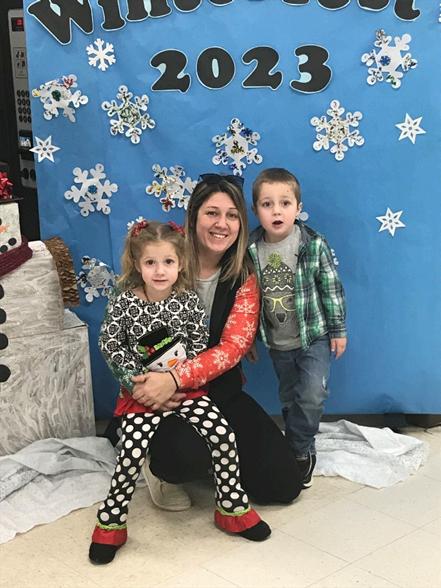
The Head Start program is funded by grants from the Federal Department of Health and Human Services, the State of Ohio Department of Health and Human Services, and the Ohio Department of Jobs and Family Services. We must match 20% through In-Kind. In-Kind refers to volunteer time and donated materials or services. Volunteering is not a requirement for enrollment. It is, however, vitally important that parents volunteer their time and services to enhance the program and their children’s learning experience.
We welcome volunteers in our classrooms. Please see your child’s teacher to make arrangements or watch for specific volunteering requests. Any person volunteering more than 20 hours in the classroom per month will have to submit required paperwork, which includes a background check.
Volunteer hours are documented for participating in approved activities (classroom support, parent meetings, office work, parent activities, etc.). When completing the monthly Volunteer Log, parents are required to document and track the time spent on activities. Volunteers are encouraged to submit volunteer forms monthly so that the program can receive proper credit.
The most important volunteering efforts for the program are the hours you spend supporting your child’s educational and emotional growth.

Every Head Start program must have a Policy Council as part of its shared leadership structure. The Policy Council is a group of Head Start parents and community members who help lead and make decisions about their program. The Policy Council meets regularly as a group. Members can serve for one year at a time, for up to five years. They work closely with the program's management team and governing body to provide overall direction for the program. Serving on Policy Council strengthens leadership and advocacy skills as well as connections to peers and the community Policy Council members are elected by the parents of children enrolled in the program into the following positions:
● President
● Vice-President
● Secretary
Parents who participate in Policy Council also have an opportunity to attend Head Start conferences to learn more about Head Start and network with other parents and advocates.
Monthly meetings are held to give parents the opportunity to discuss center activities and to participate in mini-workshops held on topics of interest. Meetings will be scheduled with parent feedback concerning dates and times.



Enrollment and Health information is required for Admission.
I. Each Child Must Have
1. A physical examination with results on Head Start forms and signed by a physician, within 30 days of entering school.
2. Vision screening
3. Hearing screening
4. The following lab screenings completed by the Doctor:
a. Hemoglobin or Hematocrit
b. Lead
c. Sickle Cell
d. TB test
5. All immunizations up to date
6. Recorded weight
7. Recorded height
II. Parent Obligations
1. You must provide a medical and social history of your child.
2. All physicals must be completed or the child will be unable to attend school.
III. Referrals
If upon examination a medical problem is disclosed, you will need to schedule an appointment with the appropriate medical person to follow-up on the problem (eye doctor, Ear/ Nose/Throat Doctor, etc.).
IV. Health screenings
Parents will be notified of screening dates and results.
Each Child Must Have:
1. Dental examination completed
2. Prophylaxis (cleaning)
3. Fluoridation
4. X-ray
5. Cavities treated

A Head Start form must be completed and signed by the Dentist. The completed form must be returned to the office of the Head Start program or the Home Visitor within 90 days from the entry date.
The administration will review with all staff members the signs and symptoms of illness and proper hand washing and disinfecting procedures. The review shall be given to each new employee and discussed periodically at staff meetings. No staff shall attend the center if they exhibit signs and symptoms listed on the Ohio Communicable Disease Chart. The administrator reserves the right to request a physician’s note for a staff member to return to work.
A staff member will observe all children upon entering their group. The center will notify the parent or guardian of a child’s condition when a child has been observed with any signs and symptoms listed on the ODJFS Communicable Disease Chart Charts are posted prominently in each center
A child who has been suspected of communicable disease shall be isolated in a special area away from the other children. The child will be within sight and hearing of an adult at all times until they are picked up by someone on the pick-up list.
The child will be readmitted after he or she is 24 hours symptom-free and has been checked by the staff, or accompanied by a written note from the doctor or health department stating that the child is free from illness when required.
Parents of other children in the center will be notified of exposure to communicable disease in writing as necessary Students without immunizations will be excluded when there is a reported communicable disease.
The center’s policy regarding the administration of medication, topical products, medical foods, vitamins, modified diets, or fluoride supplements is as follows:
Head Start Staff administers no medication, topical products, medical foods, vitamins, modified diets, or fluoride supplements without written instructions from a physician. ODJFS Child Care licensing policies will be followed. Additionally, administration of medication and care procedures to children with disabilities will be done in compliance with the Americans with Disabilities Act (ADA).
Any special diet needs of the child will be accommodated upon receipt of documentation from the child’s doctor specifying restrictions. Once confirmed accommodations have been made in Nutrition Services, the parent(s) will be contacted with the child’s school start date. Information will be updated annually.
1. Children with a communicable disease are not permitted to attend class.
2. If your child has a communicable disease, you must notify the office.
3. Children must be symptom-free without medication for 24 hours and be examined by the staff or submit a doctor’s note before returning to the classroom to determine freedom from the contagion.
4. Those who have a note from a doctor must give it to a staff person receiving the child so it can be reviewed by the Family Service Assistant.
1. Diarrhea
2. Severe Coughing
3. Difficult or Rapid Breathing
4. Yellow Skin or Eyes
5. Redness of the eye (Discharge, Matted eyelashes, Burning, Itching)
6. Temperature of at least 100 degrees Fahrenheit when in combination with any other sign or symptom of illness. Temperature shall be taken by the axillary (armpit) method.
7. Infected Skin Patches
8. Dark Urine/ Gray or White Stool
9. Stiff Neck
10. Lice, Scabies, or other Parasites
11. Unusual Spots or Rashes
12. Vomiting
13. Sore Throat/ Difficulty Swallowing
14. Covid 19
1. Minor Cold Symptoms Alone
2. Not Feeling Well Enough to Participate
The site administrator or other supervisor/designee will make decisions regarding discharging of a child. Any child sent home for communicable disease may return once they are symptom-free without medication for 24 hours and are in accordance with ODJFS policies and procedures.
Health screenings benefit the overall health of the child. It is through checkups and tests that potential health problems can be identified.
Lead can be harmful to your child, slowing physical and mental growth and damaging many parts of the body. The most common way children get lead poisoning is by being around old house paint that is chipping or peeling. Some authorities recommend lead tests at 1 and 2 years of age. If you can answer “yes” to any of the questions below, your child may need lead tests earlier and more often than other children. Has your child:
● Lived in or regularly visited a house built before 1950?
● Lived in or regularly visited a house built before 1978 (the year lead-based paint was banned for residential use) with recent, ongoing, or planned renovation or remodeling?
● Had a brother or sister, housemate, or playmate monitored or treated for lead poisoning?
LCCAA Head Start is committed to providing safe and healthy facilities that are free from pollutants, hazards, and toxins that are accessible to children and could endanger their safety, including lead in water and paint. In order to meet performance standards, the program has developed a Water/Surface Lead Testing and Remediation Plan, which includes policies and procedures to reduce children’s exposure to lead in drinking water and on surfaces within the facilities.

Vision screenings are used to find children who are at high risk for possible vision problems. Vision screenings do not take the place of a complete eye exam by an optometrist or ophthalmologist.
Young children with vision problems do not know the way that they see the world is not the way they should be seeing it. Without early detection and treatment, children’s vision problems can lead to permanent vision loss and learning difficulties.
Your child/children will be screened within 45 days of starting school by a Family Service Assistant (FSA). The FSAs have been trained and certified by Prevent Blindness Ohio. If your child does not pass the vision screening it is important that you follow up by scheduling a complete eye exam with an optometrist or ophthalmologist. If you need assistance in finding an eye doctor, please contact your FSA.
● Eyes turning inward (crossing) or outward
● Squinting
● Headaches
● Blurred or double vision
Observation is how the eyes appear upon visual inspection. Visual Acuity is the sharpness of vision in each eye.

Your child/ren will be screened from 5 feet away using the VIP crowded LEA Chart. The symbols used are circle, square, house, and an apple. Children will practice by naming the symbols before the screening.The vision screener is accustomed to other names being given to these items and will follow your child’s lead.
The screening is done at a distance of five feet and the child will identify symbols by naming or pointing to the match on the practice card.
Passing Criteria: 3 yr old: 5/12.5 line, 4 yr old: 5/10 line, and 5 yr old: 5/10 line. Children must correctly name or match at least three of the four symbols of this size (which is the smallest line of age specific Lea Symbols).
If the child fails the screening, a rescreen will be done within 2 weeks. A fail at this time will result in a referral letter sent home with the child
The Stereo Smile test will indicate if your child’s eyes are working well together This is called binocular vision.
LCCAA FSAs are trained to conduct hearing screenings using the Pure Tone Screening and OAE for preschoolers. If a child does not pass, staff will retest in two weeks then record as pass or fail. If a fail is recorded, a rescreen will be done within 2 weeks. A failure at this time will result in a referral letter being sent home for follow-up with a doctor.
Although our staff are trained screeners, they are not medical personnel. The screenings are done to identify possible concerns. See a medical doctor if your child exhibits any of the following hearing warning signs:
● Poor response to noise or voice
● Slow language and speech development
● Abnormal sounding speech
Head Start also requires a screening for Anemia (blood test). Anemia is having less than the normal number of red blood cells or less hemoglobin than normal in the blood.
Family Service Assistants will measure heights and weights twice a year for each child. The screenings determine the BMI (Body Mass Index) for each child and to identify children who are or at risk for being over or underweight.
Beverages
● Drinking water is available at all times, and is promoted by teachers, both indoors and outdoors.
● Only 1% milk is served to children aged 2 or older.
Menus and Variety
● Our program uses a cycle menu for a four week lunch and two week cycle for breakfast and snack. Entrees are repeated no more than two times throughout the cycle.
● Our menus include a combination of new and familiar foods which are wholesome, of good quality, prepared from scratch when possible, sufficient in amount, and varied in accordance with the USDA Dietary Guidelines.
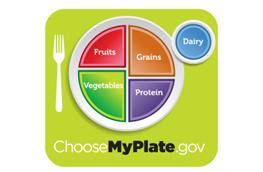
● Foods are age appropriate in portion and variety, and served at regular hours at appropriate intervals.
● Our menus include foods from a variety of cultures which broadens each child’s food experiences. We develop and serve child-friendly bean and legume dishes to introduce alternative protein sources.
● Meals include one serving of fruit and one serving of vegetables. Such items could include fresh fruits and vegetables, cooked, dried or canned fruits (canned in fruit juice or light syrup). A vegetable may be used to meet the entire fruit requirement.
● We offer high fiber whole grains at least 2 times a day.
● Menus are planned under the supervision of a registered dietitian.
● Menus are posted to inform parents about their child’s daily nutrition.
Mealtime Environment
● Meals are served family style, with teachers joining the children for meals. This time is used for rich conversation about topics including the food being served. There is a no screen policy during meals. Staff members eat the same food as the children and do not substitute their own food or drink.
● Staff members allow children to decide how much to eat. Children are encouraged to try new foods, but never forced to eat something they do not like. Food is not used to reward behavior.

● Visible support for good nutrition is displayed in classrooms and common areas using posters, pictures, and books.
● We do not serve nuts, shellfish, or fish.
● Private space is available for parents who wish to breastfeed or pump breast milk.
● Staff members receive training on nutrition (other than food safety and food program guidelines) at least twice per year
● Nutrition Education opportunities are offered to parents at least twice a year.
LCCAA Head Start and Early Head Start is committed to providing safe, healthy and nutritious food to children in our care. We respectfully request that no food be brought from home or elsewhere into the facility Your child’s daily school diet follows the Ohio CACFP menu requirements and meets the USDA guidelines for a child’s recommended needs. Additionally, outside foods cannot be monitored for our students with allergies. Parents arriving with food from an outside source will be asked to dispose of it.
We do encourage parents to discuss options for “Healthy Celebrations” with their child’s teachers. Ideas include:
● Bring in your child’s favorite book or donate a book to the classroom. Read to the class in person or via Zoom.
● Share a special talent.
● Send in stickers, pencils, or inexpensive toys/party favors.
● Donate a fish or plant to the classroom.
● Send in your child’s favorite game to play or donate a game to the classroom.
LCCAA Head Start understands that TV and other electronic media can get in the way of exploring, playing, and interacting with others, which encourages learning and healthy physical and social development. In accordance with the American Academy of Pediatrics’ recommendations, screen time is limited to around thirty minutes per day (child computer/smartboard). We do not allow screen time during meals or snacks.
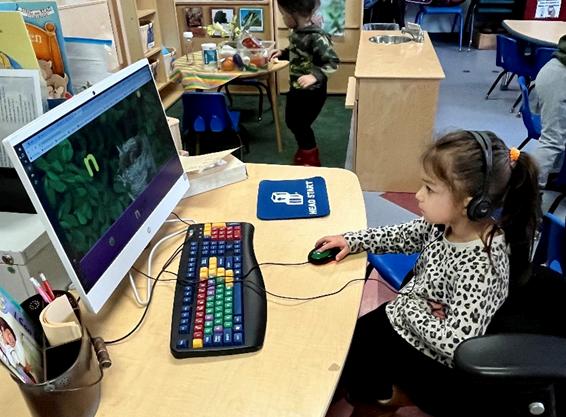

LCCAA Head Start is a proud partner of Ohio Healthy Programs, which includes a five-part voluntary designation program that focuses on creating healthy habits, menus, policies, and family engagement in early childhood education programs to prevent childhood obesity These practices ensure that your children have healthy food options and physical activities daily
In accordance with federal civil rights law and U.S. Department of Agriculture (USDA) civil rights regulations and policies, this institution is prohibited from discriminating on the basis of race, color, national origin, sex (including gender identity and sexual orientation), disability, age, or reprisal or retaliation for prior civil rights activity
Program information may be made available in languages other than English. Persons with disabilities who require alternative means of communication to obtain program information (e.g., Braille, large print, audiotape, American Sign Language), should contact the responsible state or local agency that administers the program or USDA’s TARGET Center at (202) 720-2600 (voice and TTY) or contact USDA through the Federal Relay Service at (800) 877-8339
To file a program discrimination complaint, a Complainant should complete a Form AD-3027, USDA Program Discrimination Complaint Form which can be obtained online at: https://www.usda.gov/sites/default/files/documents/USDA-OASCR%20P-Complaint-Form-050800 02-508-11-28-17Fax2Mail.pdf, from any USDA office, by calling (866) 632-9992, or by writing a letter addressed to USDA The letter must contain the complainant’s name, address, telephone number, and a written description of the alleged discriminatory action in sufficient detail to inform the Assistant Secretary for Civil Rights (ASCR) about the nature and date of an alleged civil rights violation The completed AD-3027 form or letter must be submitted to USDA by:
1 Mail:
U.S. Department of Agriculture Office of the Assistant Secretary for Civil Rights 1400 Independence Avenue, SW Washington, D C 20250-9410; or 2 Fax: (833) 256-1665 or (202) 690-7442; or
3 Email: program.intake@usda.gov
This institution is an equal opportunity provider.

¡Buena nutrición hoy significa un mañana más saludable!

Esta guardería infantil recibe ayuda del Child and Adult Care Food Program para servir comidas nutritivas a sus niños. Comidas servidas aquí deben de seguir los requisitos nutricionales establecidos por USDA. ¿Preguntas? ¿Inquietudes?
LCCAA HEAD START 936 Broadway Ave Lorain, Ohio 44052 (440) 245-2009
CACFP Consultant 25 S. Front Street, 3rd Floor Columbus, Ohio 43215-4183 (614) 466-2943
Aprenda más información sobre CACFP en el sitio web del USDA: https://www.fns.usda.gov/ USDA es un proveedor, empleador y prestamista que ofrece igualdad de oportunidades.
United States Department of Agriculture Food and Nutrition Service FNS-317 Noviembre 2019